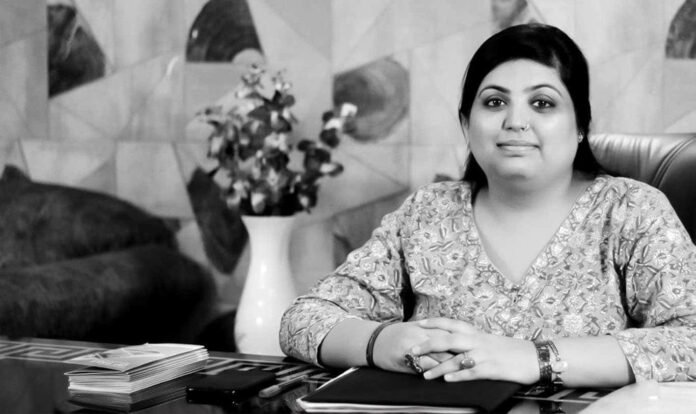Dermatologists specialize in diagnosing and treating illnesses of the skin, hair, nails, and mucous membranes. Some dermatologists also perform surgeries. Those wondering what a dermatologist is and what they do can benefit from this comprehensive guide. One can also find out whom to consult and the Best Dermatologist in Delhi. Let’s start with learning a bit more about who a dermatologist is.
Who is a Dermatologist?
The skin is the largest and heaviest organ, serving several important tasks. It protects one from heat, cold, pathogens, and harmful things. It’s also an excellent predictor of one’s overall health, as changes in the color or feel of the skin can indicate a medical issue. It is important to take good care of the skin and be conscious of its overall condition.
A dermatologist is a specialist who specializes in the treatment of:
- Skin.
- Hair.
- Nails.
They specialize in detecting and treating skin, hair, and nail problems and managing cosmetic conditions such as hair loss and scarring.
What is the Training & Qualification of a Dermatologist in India?
In India, becoming a dermatologist involves several steps and years of rigorous education and training. Having researched about it and also discussed the same with Dr. Nivedita Dadu, a leading dermatologist and the founder of the Best Skin Clinic in Delhi, Dadu Medical Centre, here is a general outline of the process:
Educational Qualifications:
- Higher Secondary Education (10+2):
- Focus on science subjects, particularly Biology, Chemistry, and Physics.
- To qualify for medical entrance exams, get good marks in the 12th-grade board exams.
- MBBS Degree:
- Gain admission to a medical college by clearing the National Eligibility cum Entrance Test (NEET-UG).
- Complete the Bachelor of Medicine and Bachelor of Surgery (MBBS) program, which usually lasts 5.5 years, including a 1-year internship.
- Postgraduate Specialization in Dermatology:
- After MBBS, clear the NEET-PG (Postgraduate) exam to gain entry into a dermatology specialization.
- Enroll in a Doctor of Medicine (MD) Dermatology, Venereology, and Leprosy program. This program typically lasts three years.
Additional Training and Certifications:
- Fellowships and Advanced Training:
- Optional fellowships in sub-specialties of dermatology such as pediatric dermatology, cosmetic dermatology, dermatopathology, or procedural dermatology.
- Participate in workshops, conferences, and seminars for continued medical education and to stay updated with the latest advancements in dermatology.
Professional Licensing and Practice:
- Medical License:
- Register with the Medical Council of India (MCI) or the respective State Medical Council after completing the MBBS degree to practice medicine legally.
- Practice:
- Start practicing as a dermatologist in hospitals, clinics, or private practice.
Continuous Professional Development:
- Continuing Medical Education (CME):
- Regularly attend CME programs, workshops, and conferences to keep updated with the latest research, techniques, and advancements in dermatology.
- Membership in Professional Bodies:
- Join professional organizations like the Indian Association of Dermatologists, Venereologists, and Leprologists (IADVL) for networking and professional development.
This rigorous educational and training pathway ensures that a dermatologist is highly qualified to identify and treat various skin conditions while providing advanced treatment solutions.
What Does a Dermatologist Do?
A dermatologist’s work is often separated into three categories. This includes:
- Medical. A dermatologist diagnoses and treats skin diseases, including plaque, psoriasis, rosacea, and acne. A dermatologist can also detect skin complaints that may indicate the presence of other medical disorders. For example, itchy, dry skin may signal kidney problems.
- Surgery. Many dermatologists do minor surgeries, such as removing moles or warts or taking skin biopsies. Other dermatologists will perform more comprehensive surgeries. These procedures may include removing benign cysts or skin cancer.
- Cosmetic. A dermatologist can address skin problems that impair one’s appearance, such as hair loss, dark patches, or wrinkles. Many dermatologists are qualified to administer cosmetic treatments, such as fillers, chemical peels, and laser hair removal.
What Conditions Do Dermatologists Treat?
Dermatologists can treat thousands of problems affecting the skin, hair, and nails. Some of the most common conditions they address are:
- Acne. Depending on the severity of the acne, a dermatologist may recommend topical treatments, medication, lasers or other light therapies, chemical peels, or the removal of large cysts.
- Dermatitis. Dermatitis includes a variety of skin disorders that produce inflammation and discomfort. This could consist of eczema, cradle cap, and allergic reactions.
- Infections. Viruses, bacteria, fungi, and parasites can all penetrate the skin and cause various illnesses. A dermatologist can assist in determining the source of infections and prescribing appropriate treatment.
- Hair Loss. Hair loss can be caused by genetic baldness. Stress, sickness, and hormonal changes are all factors that can contribute to hair loss. A dermatologist can help one identify the underlying reason and, if feasible, treat it.
- Nail Issues. Dermatologists address common nail disorders such as spots, discolouration, and separation.
Having gained a thorough understanding of who a dermatologist is and what they treat. The next important thing is promptly identifying the symptoms and contacting a dermatologist. One can consult a leading dermatologist, Dr. Nivedita Dadu, who specializes in effectively treating skin, nails, and hair. The doctor founded an advanced skin and the Best Hair Clinic in Delhi, Dadu Medical Centre. The clinic is in Delhi at Rajouri Garden (West Delhi) or Vasant Kunj (South Delhi). Pay a visit now!
